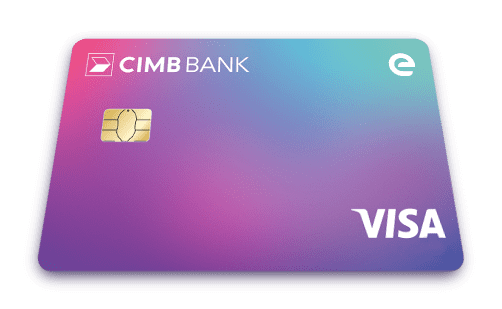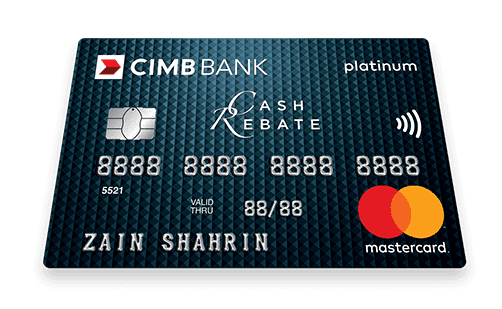{{tile.title}}
{{tile.description}}
{{tile.expiryDate}}









We will be right with you.
Savings Strategies
CIMB ❘ 20 Jan 2023
4 min(s) read
Considering getting a credit card? There are plenty of perks and advantages that come with credit cards. Depending on the card features, you can earn bonus points, cash back, travel rewards, merchant discounts and more. They are also extremely convenient and secure and can be used across the world.
But a credit card can also lead to overspending and ultimately, credit card debt. Don’t worry, our guide below and some planning can help you cultivate healthy money practices!
Here are a few common mistakes to avoid as a first-time credit card user.
Your bank calls you up to offer a credit card? Don’t say “yes” immediately. It can be hard to resist an enticing introductory offer, but always check and compare a few cards before you decide.
Some things to consider when choosing a credit card: the card’s benefits, interest rate, minimum income qualification, annual fee and credit limit.
Try your best to pay off your credit card balance in full every month. What happens if you don’t? The card interest will accrue on the remaining balance, which means that you may end up paying more in interest. It will also take you longer to pay off the credit card debt.
Owning a credit card comes with the temptation to spend. Here’s the tip to stop that impulse shopping: Always. Be. Checking…your card spending. Check the total amount due on your banking app before making any unplanned purchase. If it’s too high, then don’t buy.
Do also keep in mind that your debt utilisation ratio – the percentage of your available credit – might also affect your credit score. So always keep this in mind while you’re swiping!
Now that you know what not to do, we've got some tips on how to filter and select your first credit card. Credit cards are great payment tools if they are used prudently and with care. So consider these pointers before using them or applying for a new one:
Compare cards that best suit your purpose
Choose the best card that’s suited to your lifestyle. To a frequent international traveller, a credit card that gives insurance coverage and a better currency exchange rate would be the best option. Similarly, for someone who relies on online purchases and transactions, a card that offers added benefits or points on these transactions would be the better choice.
Take notice of various fees and charges
The interest rate, annual fees and cash withdrawal interest rate are some of the things that you need to know when using a credit card.
Additional benefits offered for cardholders
While deciding on a card, keep a look out for additional benefits that come with a card. For example, a frequent flyer may choose a card which offers flyer miles. Some cards have additional pay with points option, where one can redeem bonus points and use them for payment towards purchases.
Want a credit card that suits your lifestyle? Browse our credit cards here.
This article is for informational purposes only and CIMB does not make any representation and warranty as to the accuracy, completeness and fairness of any information contained in this article. As this article is general in nature, it is not intended to address the circumstances of any particular individual or entity. You are advised to consult a financial advisor or investment professional before making any decisions based on the information contained in this article. CIMB assumes no liability for any consequences arising from your reliance on the information presented here.
This link is provided for your convenience only and shall not be considered or construed as an endorsement or verification of such linked website or its contents by CIMB Group.
CIMB Group makes no warranties as to the status of this link or information contained in the website you are about to access.
Do you wish to proceed?


